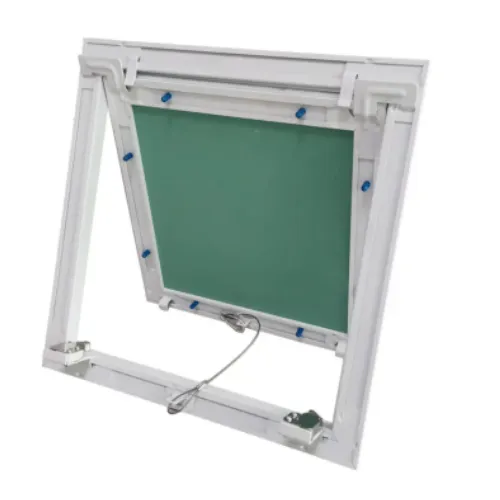Nov . 27, 2024 19:24 Back to list
Composition of Mineral Fiber Ceiling Tiles and Their Manufacturing Process
Understanding Mineral Fiber Ceiling Tiles Composition and Benefits
Mineral fiber ceiling tiles are popular choices in commercial and residential spaces for their aesthetic appeal, durability, and sound absorption properties. But what exactly are these tiles made of? To better understand mineral fiber ceiling tiles, it is important to explore their composition, manufacturing process, and the advantages they offer in various applications.
Composition of Mineral Fiber Ceiling Tiles
Mineral fiber ceiling tiles are primarily made from a combination of natural and synthetic materials. The key ingredients typically include
1. Mineral Wool This is the primary raw material used in the production of mineral fiber tiles. Mineral wool is derived from volcanic rock, basalt, or limestone. The rock is heated to high temperatures until it melts, then spun into fine fibers, similar to how cotton candy is made. This process creates a lightweight and insulating material that serves as the foundation for the tiles.
2. Gypsum Many mineral fiber ceiling tiles also include gypsum, a mineral composed of calcium sulfate. Gypsum contributes to the fire-resistance properties of the tiles, making them a safe choice for various applications. It helps enhance the durability and structural integrity of the tiles.
3. Recycled Materials In recent years, manufacturers have increasingly incorporated recycled content into mineral fiber tiles to reduce environmental impact. This can include post-consumer recycled paper or industrial byproducts, making the tiles more sustainable without sacrificing quality.
4. Binders and Additives Various chemical binders and additives are used to improve the cohesion, moisture resistance, and functionality of the tiles. These may include starches, latex, or other polymers that provide additional structural integrity and performance enhancements.
Manufacturing Process
The production of mineral fiber ceiling tiles involves several steps. First, the raw materials are mixed together in specific proportions to achieve the desired characteristics. The mixture is then processed under controlled conditions, where it is molded into tiles of various sizes and thicknesses.
what are mineral fiber ceiling tiles made of

After molding, the tiles are subjected to a curing process to ensure proper bonding and to enhance their fire-resistance and moisture-resistant properties. Once cured, the tiles undergo finishing treatments, which may include painting or texturing to achieve the desired aesthetic appeal.
Benefits of Mineral Fiber Ceiling Tiles
Mineral fiber ceiling tiles offer a multitude of benefits that make them an attractive option for many building projects
1. Acoustic Performance One of the most significant advantages of mineral fiber tiles is their ability to absorb sound. The fibrous structure of the tiles helps reduce noise levels in busy environments, making them ideal for offices, schools, and other public spaces.
2. Fire Resistance Due to the inclusion of gypsum and the inherent properties of mineral wool, these tiles are classified as fire-resistant. This makes them suitable for areas where fire safety is a concern, such as commercial buildings and high-rise constructions.
3. Energy Efficiency Mineral fiber ceiling tiles contribute to overall energy efficiency. They can provide insulation, helping to regulate indoor temperatures and reduce heating and cooling costs.
4. Design Flexibility Available in a wide variety of styles, colors, and textures, mineral fiber ceiling tiles can enhance the aesthetic appeal of any space. From sleek and modern designs to more traditional looks, they can complement various interior styles.
5. Sustainability As manufacturers increasingly utilize recycled content in their products, mineral fiber ceiling tiles can be a sustainable choice for environmentally-conscious consumers.
Conclusion
In summary, mineral fiber ceiling tiles are comprised of mineral wool, gypsum, recycled materials, and various additives, resulting in a versatile building material that combines functionality with aesthetic appeal. Their acoustic, fire-resistant, and energy-efficient properties make them suitable for diverse applications, while their range of designs allows for creative flexibility in interior spaces. As the demand for sustainable building materials continues to grow, mineral fiber ceiling tiles remain a reliable choice for modern construction projects.
-
Quality Ceiling Trap Doors & Access Panels | Easy & Secure AccessNewsAug.30,2025
-
Durable Ceiling T Grid Systems | Easy InstallationNewsAug.29,2025
-
PVC Gypsum Ceiling: Durable, Laminated Tiles for Modern SpacesNewsAug.28,2025
-
Pvc Gypsum Ceiling Is DurableNewsAug.21,2025
-
Mineral Fiber Board Is DurableNewsAug.21,2025
-
Ceiling Tile Clip Reusable DesignNewsAug.21,2025







